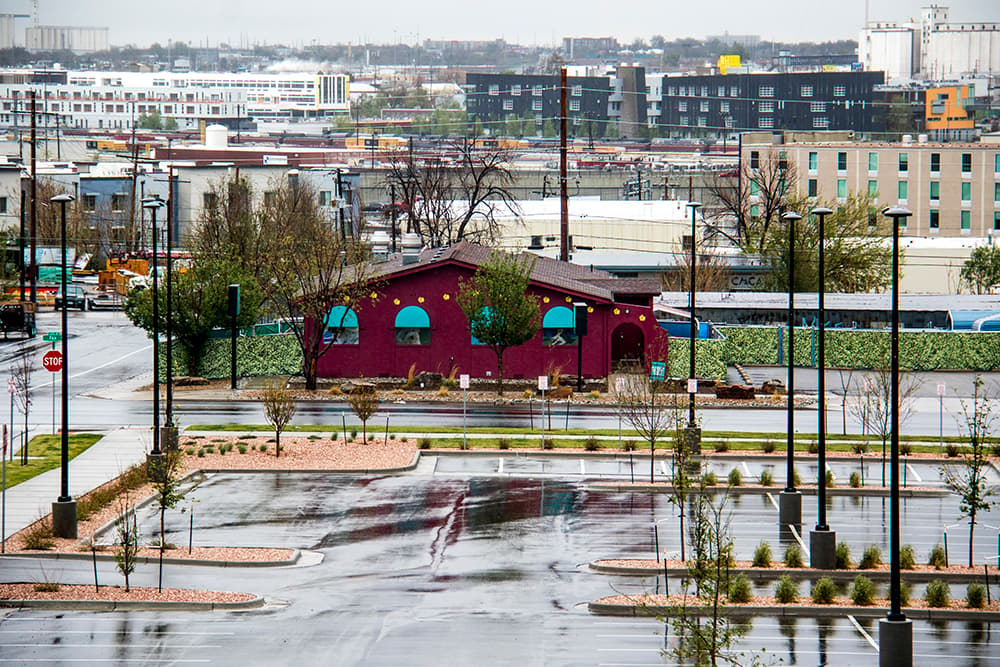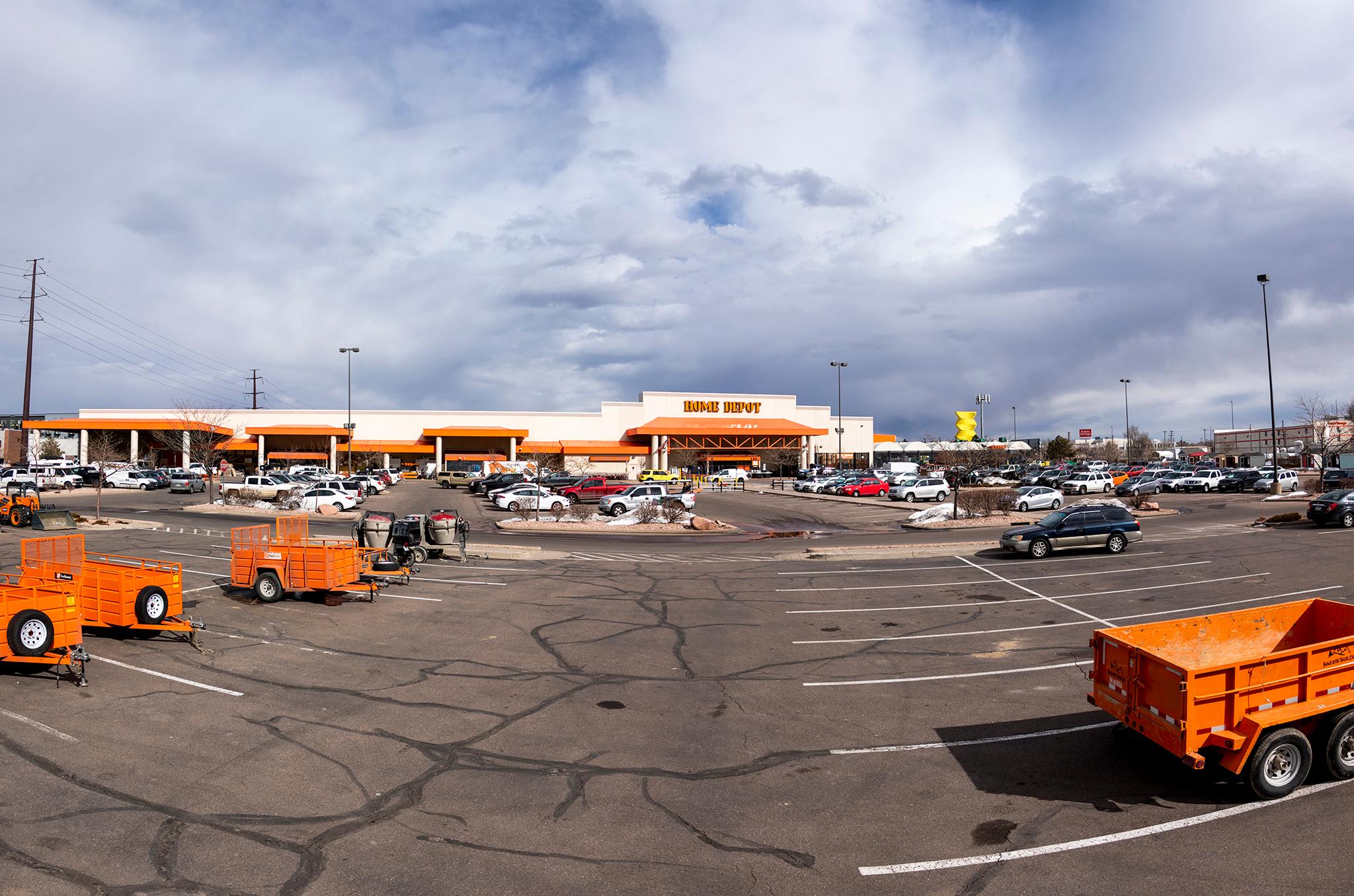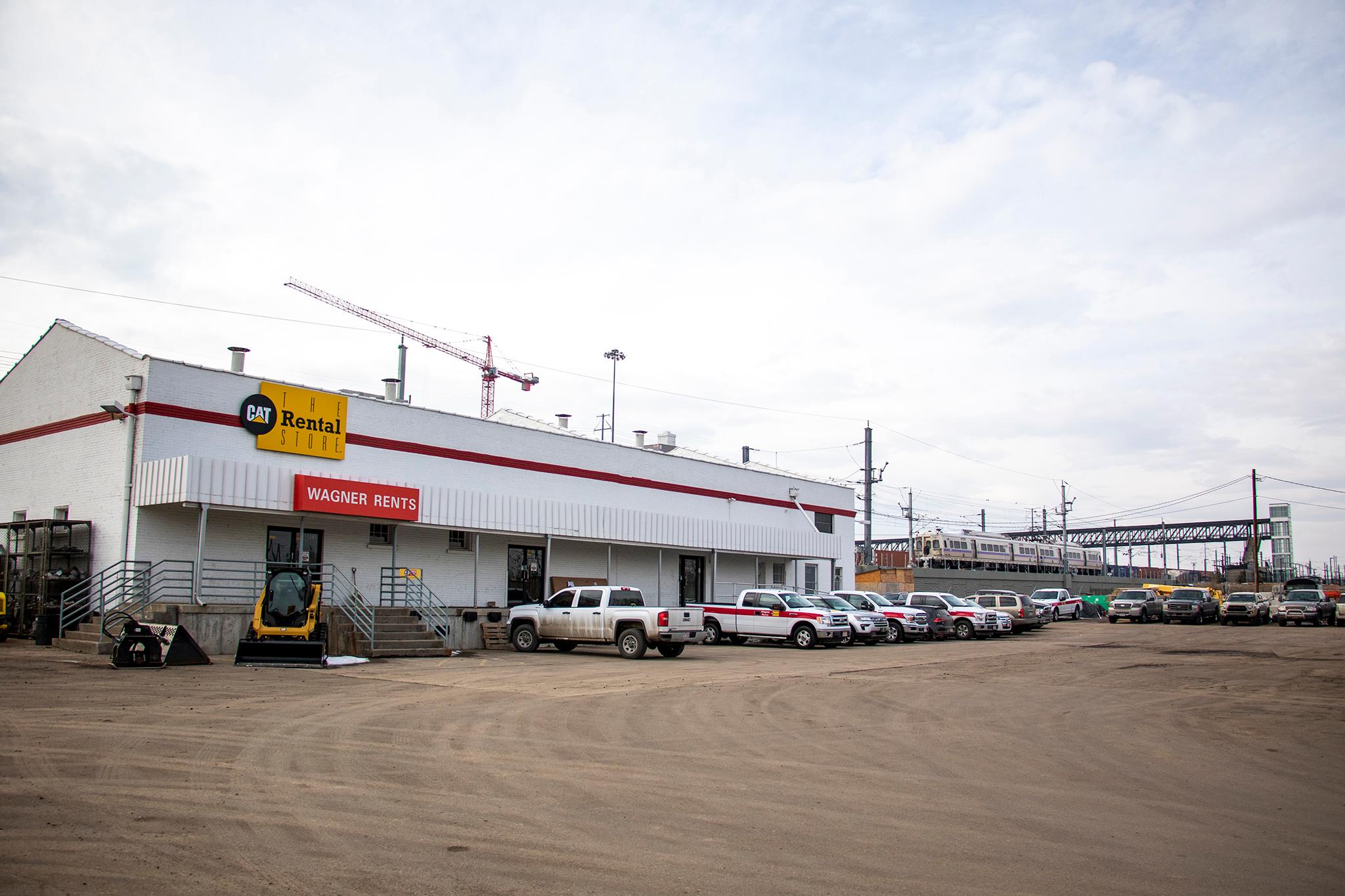Sometimes when a person or company wants to add new things in an old neighborhood they need special permission from the city to make sure it aligns with long-held goals set by city planners and residents.
And sometimes the city's plans don't matter much. Property owners have rights, even if city hall isn't thrilled about what they build. (See: self-storage.)
That's the case with a proposed Home Depot at the 41st and Fox RTD station in Globeville. The area, known to city officials as "Fox Island" because of its constrained layout, is supposed to harbor lots of density, according to the station area plan, and restrict parking. The idea is to concentrate compact, walkable places around transit to reduce our reliance on cars.
A big-box store next to the RTD station offends that vision, according to Chris Nevitt, Denver's manager of transit-oriented development.
"Our station area plan, which is a plan for the whole area, lays out a future vision -- a 25-year vision -- and that vision perceives a (transit-oriented development) with high density -- very high density -- in a mixed-use, walkable, asset-rich community," Nevitt said. "Large format retail that's traditionally associated with large parking fields is not consistent with that vision."

Home Depot doesn't yet own the property, which currently houses an equipment rental company at 805 W. 39th Ave. in Globeville on the edge of Sunnyside. It allows for homes and business of up to 20 stories, but the Home Depot would sprawl an estimated 100,000 square feet and rise about 30. Most parking spots would likely be on the roof, Nevitt said, but surface parking, which can sap walkability, is also part of the equation.
"We're not in a position to tell everybody exactly what to do," Nevitt said. "We have these plans but that land does have entitlement and that entitlement allows for a Home Depot."
There's a silver lining for city planners -- employees could take the B and G lines to work, for example.
Homes aren't the sole beneficiary of good transit. Urban planners want to stick jobs there too.
Armando Payan with the Globeville Civic Association digs that idea.
"That would definitely bring some jobs that are much needed in terms of low-skilled workers," Payan said. "Bring it on."
Home Depot naturally generates a lot of car traffic, but most of that traffic occurs outside of rush hour, according to the city.
Still, Denver's planning department is urging Home Depot to mitigate its suburban effect on an urbanizing area in other ways, including the restoration of the original street grid. Home Depot would potentially pay to extend Galapago Street to the station.
The city is even pushing the store to stack homes on top, and Home Depot is considering it, Nevitt said. Think Vancouver Home Depot, not Santa Fe Drive Home Depot.

Still, some say planting one giant store at 41st and Fox represents a lost opportunity and a return to the type of development that's helped make Denver car-centric.
"Big box stores really don't appear to be the future of urban development," said Adam Estroff, a member of YIMBY Denver, a group that advocates for more and diverse housing options. "It seems to be a short-sighted land use there."
Hardware stores are neighborhood assets -- it's dedicating limited land to one thing that is problematic, he says.
"A hardware store isn't a bad thing to have in the city," Estroff said. "But a diversity of uses, some housing, some additional retail would really ensure that it's place-making and not just a a Home Depot. By transit is where we need to be looking at housing."
The hardware giant is still working with city planners to pencil out whether a Globeville store makes financial sense for the company, which will influence its decision to by the property.













